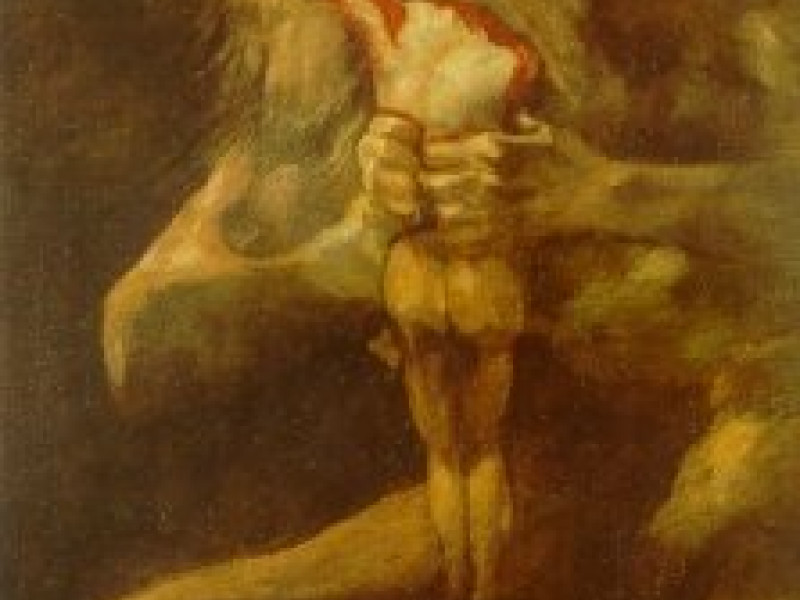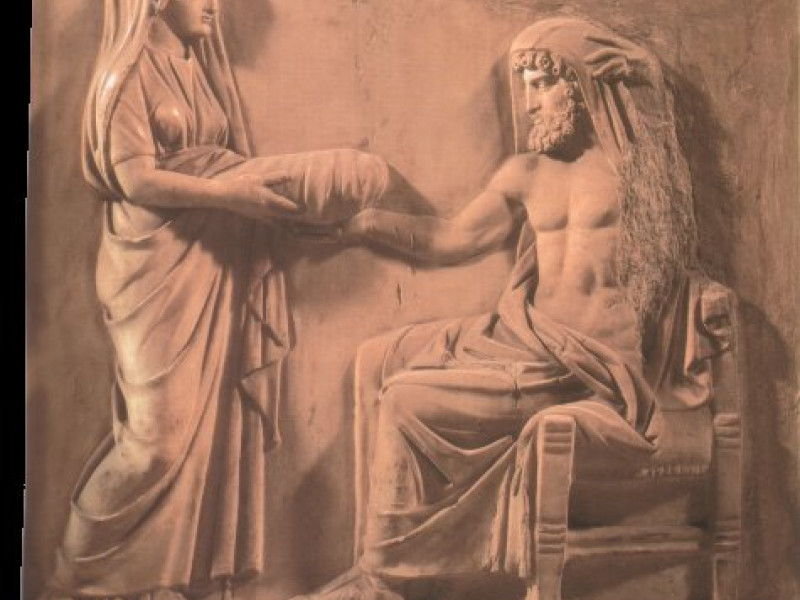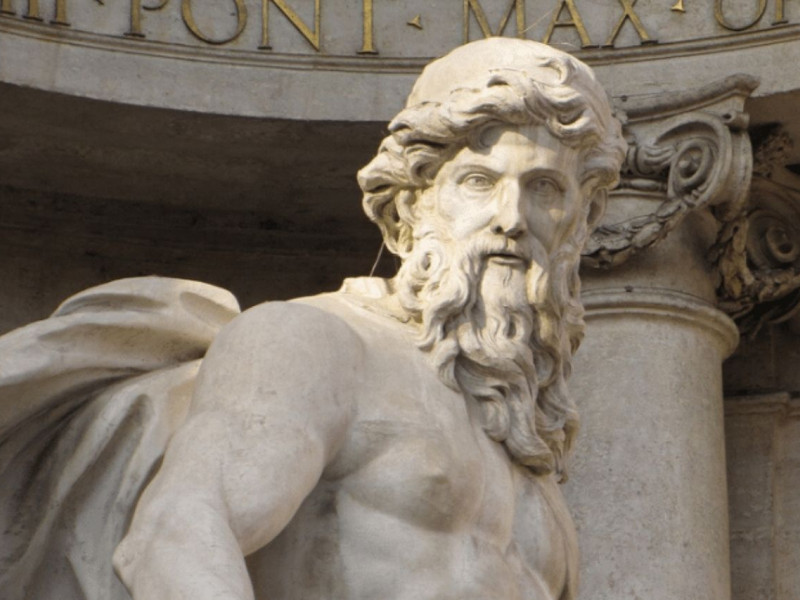Cosmogony of Diodorus Siculus
According to the 1st century BC historian Diodorus Siculus, Oceanus and Tethys were the source of all gods.
To Diodorus, Uranus was the first king, and not really a god at all. Uranus was the first to gather people together into the first walled city, giving them laws and teaching them to how to grow their crops and store food.
Uranus was also an astronomer and astrologer who could foresee the future, and he made many predictions.
Uranus was the father of forty-five sons from different wives, but it was from his consort Titaea that eighteen of his sons became known as the Titans. She also bore many daughters including Basileia and Rhea. When Titaea died, she was deified as the goddess whose name was Ge (Gaea).
Basileia was the eldest and she reared her brothers, which was why she was known as the Great Mother. Basileia would be identified as Hesiod's Theia because of her relationship with her brothers and children, but Diodorus also identified her with the Phrygian goddess Cybele. She ruled after her father's death and deification, also as a god. She married her brother Hyperion and became the mother of Helius and Selene.
Her other brothers (Titans) were jealous and feared that Hyperion would keep the royal power to himself. The Titans conspired to remove Hyperion, so they killed him and threw Helius into the Eridanus River, where her son drowned. In her grief, Selene threw herself off the high city wall.
Basileia sought along the Eridanus to find her son's body until she dropped from exhaustion. There, she had a vision of her son telling her not to grieve for him or his sister because they were transformed into the sun god and moon goddess. The Titans would also be punished for their crime.
When Basileia recovered from her swoon, she told her people about her vision before she was seized by madness, wandering the land with her daughter's playthings such as the kettledrums and cymbals. One day, in a thunderstorm, she vanished, and her people assumed that she had been transformed into a goddess. They erected an altar in her honour.
After the death of Hyperion and Basileia, the kingdom was divided between her brothers, Atlas and Cronus. Atlas became the ancestor of the Atlantides, the people in western Libya, giving the name to Mount Atlas. Because Atlas was a great astronomer and astrologer, he published a book on the doctrine of the sphere. It was for this reason why Atlas was usually seen as a man holding the heavens on his shoulders. Atlas was the father of a son named Hesperus, and of seven daughters known as the Pleiades.
As to Atlas' brother, Cronus was a greedy and impious ruler who married his sister Rhea. She bore him Zeus, one of the Olympians. Diodorus also mentioned another Zeus who was brother of Uranus and king of Crete. Cronus was the king of Libya, Sicily and Italy.
Zeus won the kingdom in a war against his father and the Titans. Unlike his father, Zeus was a virtuous ruler - wise and just - and when he died, the people claimed that he became the god and ruler of the universe.
At this point, Diodorus then gives us a brief summary of a few different myths about Dionysus (III 63. 3-5). They are different because Diodorus believed that there were three people with the name Dionysus.
The first Dionysus he said was the eldest - Dionysus of India. Diodorus said it was there that he taught the Indian people the cultivation of the vine and making of wine.
The second Dionysus was the son of Zeus and Persephone (III 64. 1-2). It was this Dionysus who was murdered by the Titans, like in the Orphic myth. Dionysus was the first person to yoke a plough to an ox, as well as other skills needed for agriculture.
Earlier in Book III 62. 3-7 however, Diodorus said that he called Dionysus the son of Demeter instead of Persephone. The Titans tore the young Dionysus to pieces and boiled his flesh, but Demeter (his mother) gathered to pieces together and he was reborn. Zeus destroyed the Titans for the murder of his son. See the Orphic Creation.
The third Dionysus was the son of Zeus and Semele, and he was born at Thebes. He was popularly known as Bacchus among the Greeks and Romans. See Semele about the birth of Dionysus.
Diodorus also give a brief description of Orpheus' involvement in with Dionysus and the founding of the new Orphic religion.
As can be seen in this article, Diodorus' myth was different from Hesiod's creation. Actually most of it was his invention. Diodorus tried to rationalize well-known myths and made the gods mortal. They only became deified at their deaths, as gods or goddesses.
The most striking part was the death of Dionysus by the Titans, which was similar to the Orphic cosmogony. It is the earliest version we know of Dionysus in regards to him being the son of Persephone, and his death.
By Jimmy Joe




